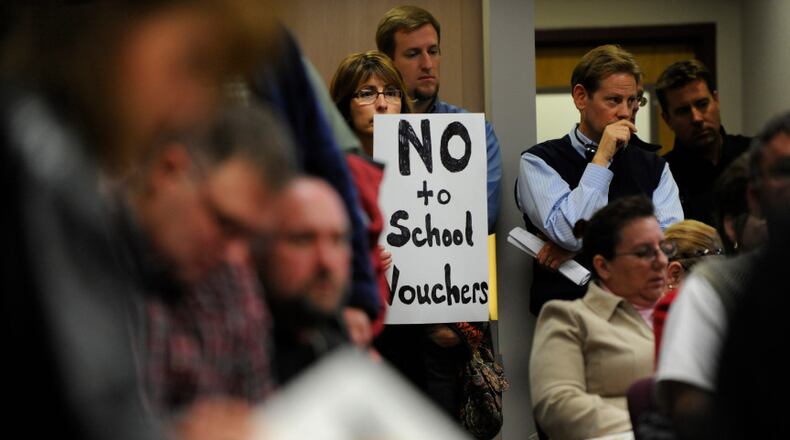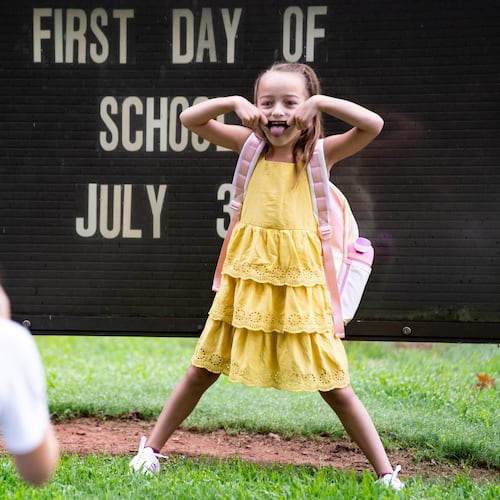Craig Harper is executive director of the Professional Association of Georgia Educators. In this guest column, he urges voters to oppose efforts in the state Senate to expand a private school voucher program designed for children with special needs.
Under a bill approved by a Senate committee last week, vouchers would be given to students with “504 plans,” which means they need special accommodations, such as more time on assignments or tests, rather than special instruction.
The proposed voucher expansion would be costly. The annual cost of the special needs scholarship program is now around $33 million. If Senate Bill 386 is enacted, the price tag could climb to more than $60 million, depending on how many students seek vouchers.
The voucher bill appears to be on a fast track; it is first up Tuesday morning for a vote in the Senate.
By Craig Harper
Public schools are the cornerstone of Georgia's communities and the engine of the state's workforce. Public schools and their educators welcome every child regardless of background, ability, or need for extra assistance. Despite the vital role of public schools, some lawmakers contend that state dollars should be withdrawn from public schools and redistributed to parents for private school vouchers for select students.
The Georgia Senate is considering a bill to expand one of Georgia’s two private school voucher programs, the Special Needs Scholarship. The program’s current price tag is about $33 million and could nearly double to more than $60 million under the proposed expansion.
No evaluation of effectiveness or student benefit of the special needs voucher program exists even though it has been in operation for more than 10 years. It is one of two state private school voucher programs. The other diverts $100 million annually from Georgia’s general fund through tuition tax credits. While some participating private schools may serve students well, others may not. The limited data available about the special needs voucher program fails to answer this question.
No consistent assessment of learning or information regarding special needs services is provided by private schools to any public entity. This differs significantly from the mandated accountability under which all public schools and educators operate, including comprehensive data on student assessment results, retention, mobility and graduation rates, and financial audits.
Participating private schools are not required to adhere to the same standards as public schools. They do not have to provide special education services to the special needs students who use the vouchers to enroll. To access the private school voucher, students are required to waive their rights to special education services under federal law. Nor are teachers required to earn and maintain educator certification or even hold a bachelor’s degree.
Georgia legislators can better serve Georgia students by using public money for public schools. Districts are coping with escalating student transportation costs that push them to divert limited local resources from classrooms to buses. The state pays only 15% of transportation costs, so districts must pick up the tab.
State investment in school counselors and social workers also lags well behind student needs. Recommended best practices call for one counselor for every 250 students, but the state supports one counselor for every 450 students. The recommended ratio for social workers is one for every 500-700 students, but Georgia funds one per 2,475 students. Investing in resources that serve all of Georgia’s public school students strengthens communities and fosters a strong workforce that can attract and build high-wage, high-skill industries. Legislators should not divert limited public funds to an unproven private school voucher program.
Parents can and should make individual decisions that they believe best meet their child’s educational needs. Those private choices should not be paid with public dollars which fund Georgia’s public schools.
About the Author
Keep Reading
The Latest
Featured



